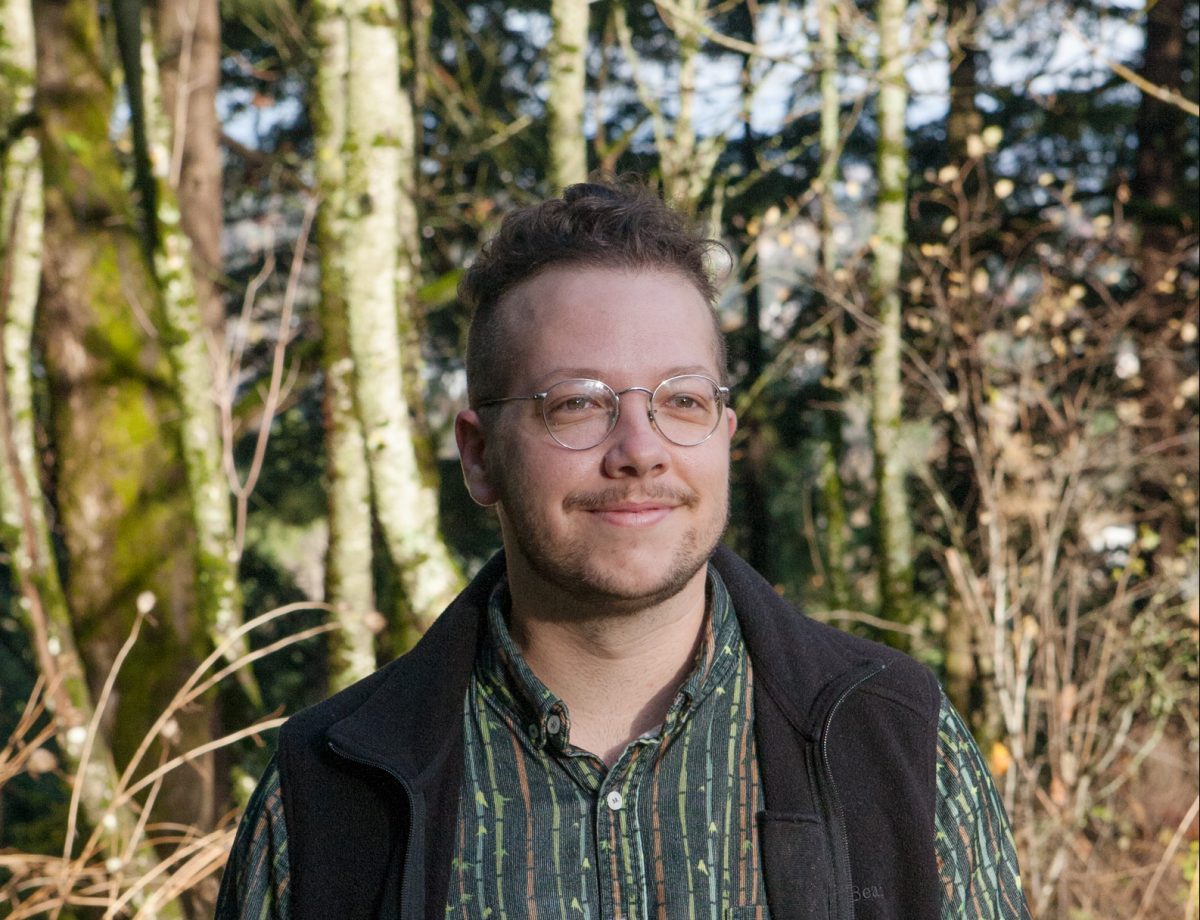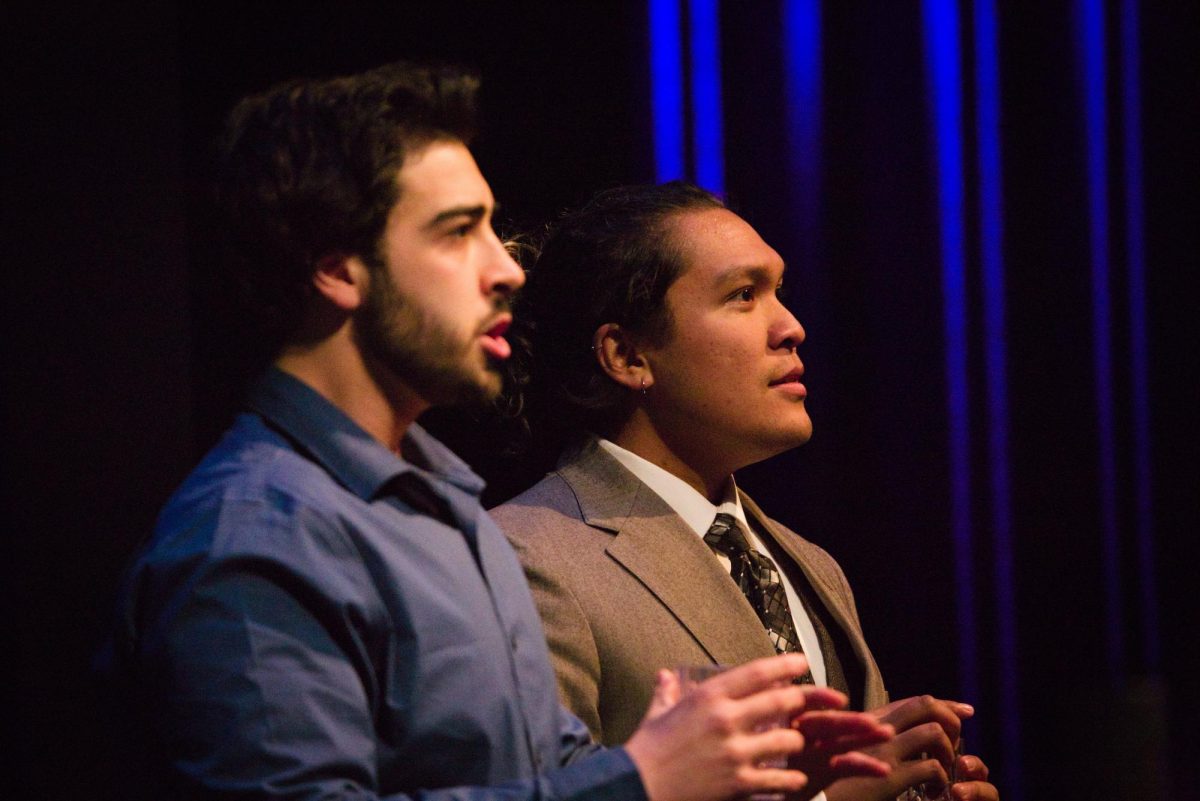BY CAMILLE BORODEY
The Central theatre department is putting the finishing touches on its performance of the culturally-relevant drama “Nanawatai,” by William Mastrosimone.
“Nanawatai” tells the engaging story of a Soviet tank crew that gets separated from its unit during the 1980’s.
“It’s a good drama, and very relevant to what’s going in the Middle East right now,” sophomore theatre performance major Travis Franks said.
“Nanawatai” paints a picture of the struggle of the soviet soldiers and the culture clash between the members of the Russian tank crew and the Afghan rebels.
“I thoroughly enjoyed teaching my students about the culture,” said George Bellah, associate professor and the play’s director. “It’s important for us as a culture to open our eyes and ears.”
Franks’ role as Konstantin Koverchenko, the tank driver for the soviet crew, is the biggest role Franks has had as a theatre major at Central.
“The amount of scenes and the length of the lines are killer,” Franks said.
Senior theatre performance major Monica Domena portrays Sherina, the only speaking female part in the show.
“It’s kinda nerve racking,” Domena said. “I am the mouth piece for seven people.”
Sherina is upset about the ways of her country, and many of the actors agree that she is the most blood thirsty character in the show.
“My character is really angry,” Domena said. “That is a lot of anger to hold on to for a long time.”
Although Domena’s role is the only female role with lines, the other female characters are equally important. As one of the seven Afghan women, senior theatre performance major Alicia Burch finds her role challenging as an actress.
“We are the train to [Sherina’s] anger,” Burch said. “Everything for me is portrayed through body language because I don’t have any lines.”
Chad Oswald portrays Taj Mohamed, a young man whose village burned down.
“He’s really young, and doesn’t really know what he is doing,” Oswald said. “Taj is the level-headed one, partly because he’s younger and less experienced.
Jordan Whidbey, senior performance major, finds himself challenged as an actor, as he portrays Taj’s cousin Moustafa. Whidbey describes his character as a fan of fighting back.
“It’s really different because I usually play comedic characters,” Whidbey said. “It’s been interesting and tough playing such a serious character.”
Nathaniel Hiko Addison, Freshman Japanese studies major, plays the role of Iskandar, an extremely religious and spiritual character. Iskandar, who often acts as the voice of reason in the midst of violence, is often seen spinning and dancing, and he never touches weapons.
“Since he is so religious, I have trouble portraying that kind of faith,” Addison said. “I’m not that religious in anyway.”
In the play’s opening scene, Haley Weis, freshman theatre major, has to die on stage. Weis describes the scene as physically demanding for her death is drawn out and she has to remain dead on stage for several minutes.
“I used to think being a dead person on stage was easy,” Weis said, “but there is a science to it.”
The play’s director George Bellah spent some time with a Bedouin Muslim tribe last year on his trip to Saudi Arabia. Although “Nanawatai” takes place in Afghanistan, Bellah learned a lot about the Muslim culture from the trip.
“It was an eye opening and enlightening experience,” Bellah said. “I had so much fun.”
On this trip, Bellah was taught much about the culture by the family that he stayed with. He describes the family as warm and welcoming, and he was even invited to pray with them.
“There are a lot of excellent things about Islamic Culture,” Bellah said. “We need to humanize them not demonize them, so we can understand what we are fighting for.”
Overall, the play offers an unbiased look at the lives of the people affected by the Cold War.
“My biggest concern has been honoring the culture the best we can,” Bellah said. “This play is important not as a documentary, but a springboard for conversation.”
Central’s production “Nanawatai” is accompanied by a stage reading of “The Afghan Women,” which is also written by William Mastrosimone.
“The Afghan Women” tells the story of a woman who returns to her homeland from the United States because she wishes to open an orphanage.




